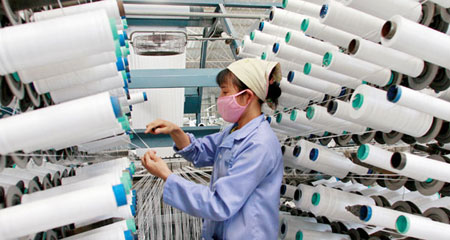

Lawyers have pointed out that though freedom of business is stipulated in the constitution and laws, businesses in reality cannot fully enjoy the right, because ministries and state management agencies have set up many requirements for them to satisfy.
The Ministry of Planning and Investment (MPI) has released a report showing that there are 386 conditional business fields in which (investors must meet certain conditions stipulated by management agencies to be eligible to set up business in the field).
It was found that there are 895 requirements set by the agencies, which, in order to be satisfied, businesses need to ask for first-class licenses, or what they call “father licenses”.
In addition, there are 2,129 requirements which need second-class licenses (called “sub-licenses” or “son-licenses”), and 1,745 requirements which need third-class licenses (or “grandchild licenses”).
The report pointed out that the requirements are set by 16 ministries and branches. They are so complicated that businesses do not know where they should seek information about the requirements, e.g., laws, government decrees or ministries’ circulars.
Nguyen Viet Thanh from the Legal Department of the Garment 10 Company noted that the Enterprise Law allows investors to register their business with very simple formalities, but this is not enough.
“You get a business registration certificate, but this is not enough for you to start your business. You will still be asked for a lot of sub-licenses to be able to do business,” he said.
For example, businesses will have to obtain licenses from the Ministry of Health and Ministry of Industry and Trade if they want to sell and trade liquor.
“I know a legal entity which still cannot start its business though it received the business registration certificate six months ago. It now still has to travel heaven and earth to obtain some more necessary licenses,” he explained.
“The requirements on the licenses have been hindering the freedom of doing business,” Phong said.
A lawyer pointed out that in many cases, the requirements set by competent agencies are unreasonable.
To prove his viewpoint, he cited current regulations in the passenger transport service sector, which say that every vehicle can run a maximum of two routes.
The unreasonable regulations lead to the fact that once a vehicle breaks down, transport firms will not be able to use the vehicles on other routes instead.
Under current laws, if transport firms want to provide more trips on some certain routes, they have to prove that their vehicles on the routes have been running at more than 50 percent of capacity for the recent consecutive months.
Meanwhile, in principle, businesses must have the right to decide whether they need to buy more vehicles and how many trips they should provide a day.
MPI’s Minister Bui Quang Vinh said that in response to the MPI’s and National Assembly’s request to cut down the number of sub-licenses, ministries and branches have kept silent.
Analysts have said that it would be very difficult to persuade the ministries to take action about this problem because they reap great benefits in granting the licenses.